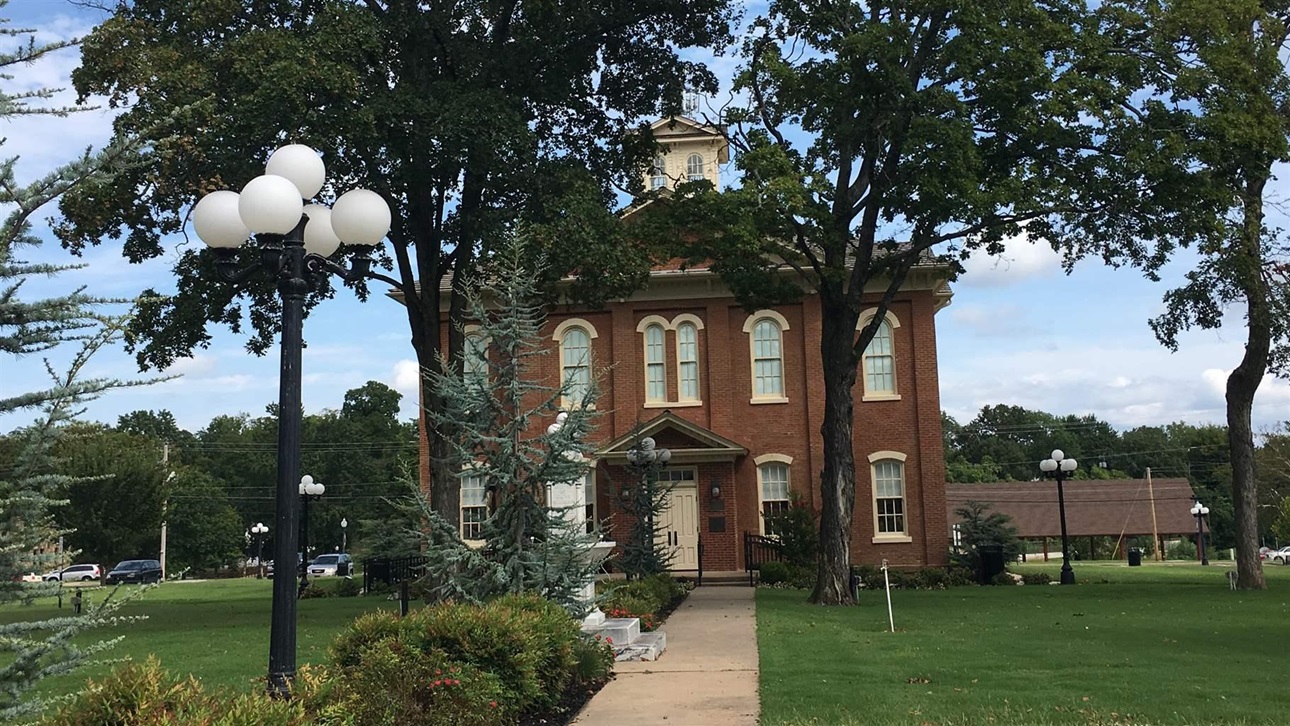Connecting state and local government leaders
Hundreds of Native children have been removed from their opioid-addicted parents.
This article originally appeared on Stateline, an initiative of the Pew Charitable Trusts.
TAHLEQUAH, Okla. — Here in the foothills of the lush Ozark Mountains, where the Cherokee Nation re-formed its government after U.S. soldiers marched members of the tribe out of the South in the 1830s, people say the removal of children from their Native homes is the most troubling part of the opioid crisis.
The earliest evidence that the opioid epidemic had seeped into Indian Country came in 2014, with a spike in the number of children taken into tribal custody because their parents were addicted to prescription painkillers.
Nearly three-quarters of the hundreds of Cherokee children who were taken from their parents because of opioid addiction have been placed in non-Native homes, because there weren’t enough tribal families who were able to take them in.
“We’ve almost lost a generation of Cherokee children,” former Cherokee Attorney General Todd Hembree told Stateline at the tribe’s government headquarters in Tahlequah, Oklahoma.
Nikki Baker-Limore headed the Cherokee child welfare agency until recently. Nationwide, she said, more than 1,700 Cherokee children are now in state or tribal custody and at least 40% of those cases are because of opioids.
“This didn’t used to be a problem and now it’s a huge problem,” Baker-Limore said. And because the number of children who need new homes has risen so sharply, it’s been impossible to find enough tribal members who can take them.
Baker-Limore adopted a baby girl whose mother had an opioid addiction and couldn’t take care of her.

And Sara Hill, the Cherokee Nation’s new attorney general, said nearly everyone working in Tahlequah’s Cherokee government center has taken in at least one child.
National statistics show that half of all children of all ethnic groups who are taken away from their parents never return home. So, with more than 70% of Native children going to non-Native families, that means the tribe may be losing them for good, Baker-Limore said.
“They can register as members, because it’s by blood. But their education and self-worth are gone,” she said. “Children wonder where they came from. ‘Do I look like my parents?’ They have a lot of questions as they grow up. If you can put that child with a tribal member, pieces of the puzzle are there for them. Because we all came from the same background.”
Research since the 1978 federal Indian Child Welfare Act shows that Native children fare better when they remain in a tribal family. The law, which requires child welfare agencies to place foster children in Native families whenever possible, came in reaction to decades of Native American children being removed from tribal families, often against families’ will.
Disproportionate Damage
Data from the U.S. Centers for Disease Control and Prevention shows that Native Americans, who make up less than 2% of the U.S. population, had higher rates of overdose deaths from prescription painkillers and illicit opioids than any other racial and ethnic group from 2003 through 2013.
And a 2018 report from the CDC found that Native American overdose deaths likely were substantially undercounted during that period. Since 2000, Native American overdose deaths from prescription and illicit opioids have increased nearly sixfold, faster than any other racial group.
Small tribes were particularly hard hit, said Stacy Leeds, a former justice for the Cherokee Nation Supreme Court and dean of the University of Arkansas School of Law who is an expert on Native American law. “When you’re talking about a tribe where the entire population is 800 people, the overdose deaths of 20 people in one year is not just a public health crisis, it has ramifications for their very existence.”
According to the Cherokee Nation, annual deaths from opioid-related overdoses within the tribe more than doubled between 2003 and 2014, with a loss of at least 350 citizens out of a population of roughly 375,000.
“We pay directly for all health care and social service needs for all of our people from cradle to grave,” said John Young, the Cherokee Nation’s assistant attorney general in charge of opioid legal cases. “The type of damages we’ve incurred are larger and different than the state, proportionally to our size.”

Unlike states, which receive federal subsidies through Medicaid and private insurance coverage, Native American jurisdictions not only pay directly for all services out of tribal revenue, they also build and run the behavioral health and medical facilities and are often the biggest employers in their counties.
Standing Trial
Cherokee tribal leaders want the drug companies they blame for the opioid epidemic to stand trial here before a jury of Cherokee citizens and their non-Native neighbors. And they want that to happen as soon as possible.
“We want them to come here and feel that this is their problem and that they’re going to be held responsible for making it right,” Hill said. “It needs to be expensive for them.”
Hill said she was encouraged by last month’s decision in an Oklahoma district court about 200 miles southwest of here. On Aug. 26, the Cleveland County District Court ordered the consumer products behemoth Johnson & Johnson, and its painkiller-producing subsidiary Janssen, to pay the state more than $572 million to abate the state’s opioid crisis. The Cherokee Nation won’t get any of that money, however.
The Cherokee Nation in April 2017 was the first tribe and one of the first government entities in the United States to sue drug companies for their role in the epidemic. The tribe filed its first case in the District Court of the Cherokee Nation, but a federal court in Oklahoma ruled the tribe had no standing to sue drug companies, because the companies were not tribal members.
In the months after that decision, the Cherokee Nation filed multiple opioid cases in the District Court of Sequoyah County, one of 14 northeast Oklahoma counties that comprise the Cherokee Nation.
Since then, nearly 450 other tribes have filed or joined similar lawsuits.
Native American opioid lawsuits have been combined with roughly 1,600 others filed by cities, counties and other groups in a sprawling mass of litigation overseen by a federal district court in Ohio.
The Cherokee Nation and two other Oklahoma tribes—the Chickasaw and the Choctaw nations—in addition to a handful of tribes elsewhere in the United States have asked the federal court to remand their cases to their home states.
So far, that hasn’t happened. No opioid lawsuit involving tribal governments has gone to trial, and no drug companies have settled with a tribal government over an opioid case.
But Leeds of the University of Arkansas said tribal leaders are generally confident they will have their day in court.
“There’s cautious optimism that they will not be excluded from any judgement or global settlement as they were in the [1998] tobacco settlement,” she said.
“But every day that passes makes that more precarious,” Leeds said. “If there are more settlements in advance and we’re talking billions of dollars, there’s a finite amount of money available, and it could mean a smaller dollar amount for Native Americans.”
Recently, drugmakers, distributors and retail pharmacy chains have argued they were fully complying with federal regulations when they sold increasingly large numbers of pills throughout the United States over the past two decades. In the last three years, they note, the volume of opioid painkillers sold nationwide has declined by at least one-quarter.
In the Cherokee Nation, the flow of pills has slowed. “Instead of 90 to 100 pills per prescription, you’ll get 20 or 15 or six,” Hembree, the former attorney general, said. The current rate of opioid-related fatalities among Native people is now slightly lower than in white populations, according to the CDC.
But Hembree says that’s not enough. “We wanted our lawsuits to change their behaviors. They have changed to some degree. Now they need to pay for the damage they’ve done.”
Delaying litigation is only good for the drug companies, Hembree said, because they can put off paying for the crisis they’ve created in the hopes they can disprove tribal claims. Meanwhile the plaintiffs continue to struggle without compensation.
“For us, speed is our friend. We need to get this into a jury trial in Oklahoma as fast as we can.”
Christine Vestal is a Staff Writer at Stateline.
NEXT STORY: Wisconsin Funds Mental Health Services for Farmers



